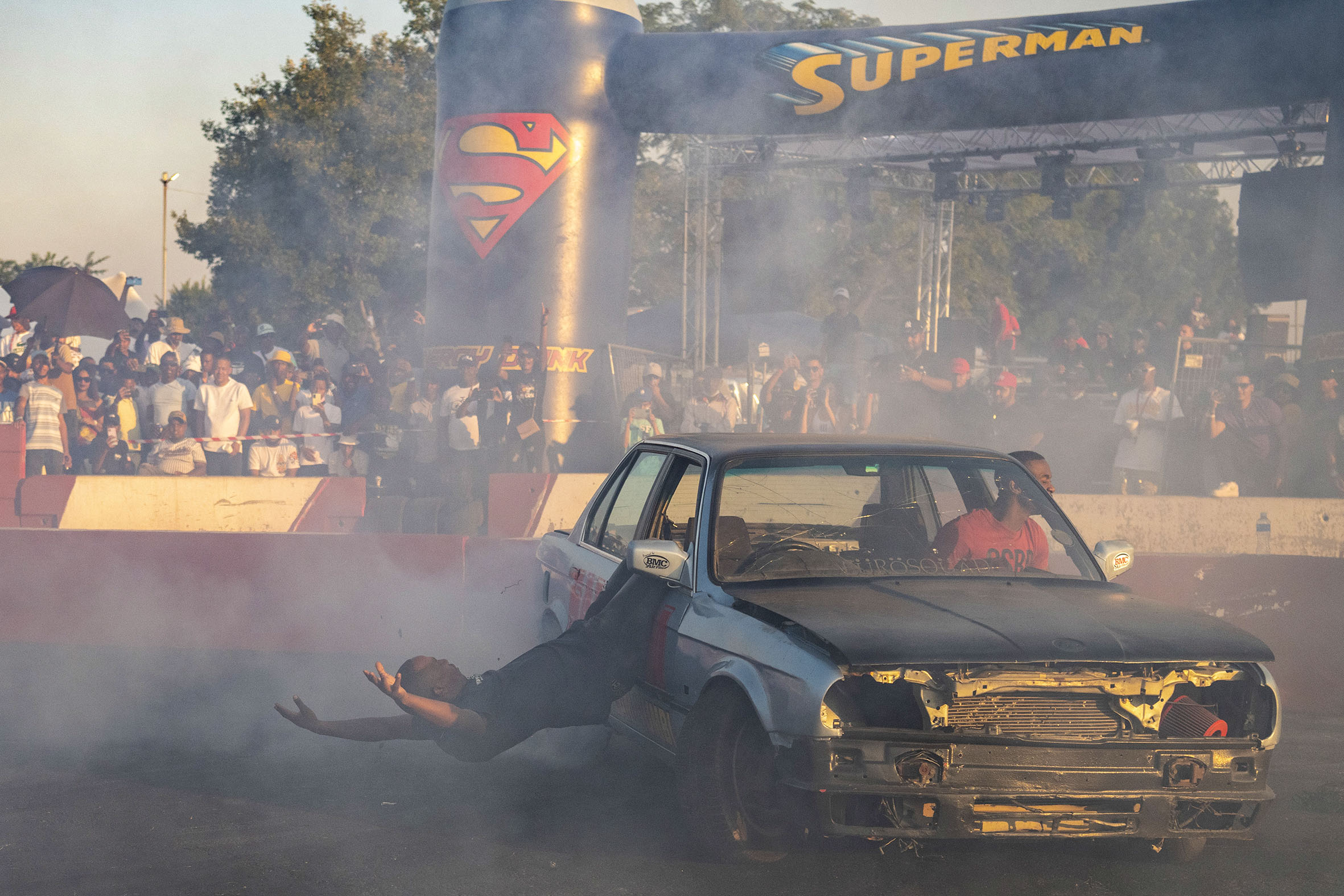The women behind Wheelz N Smoke
Arena co-owner Ayanda Mbele has turned car spinning into a family affair, taking the sport off the streets and giving aspiring spinners – particularly young women – a place to hone their skills.…
Author:
23 April 2022
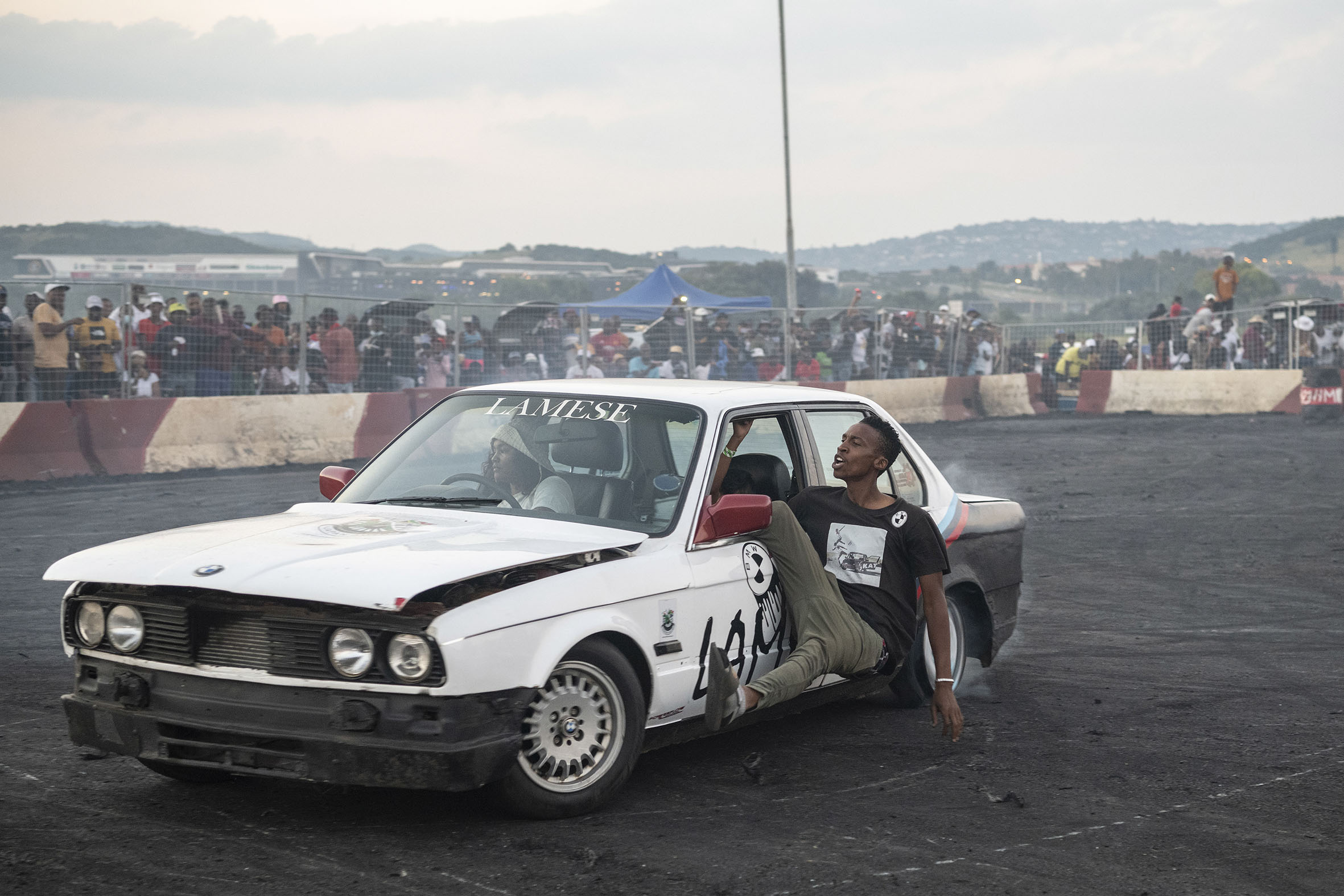
The magic of car spinning lies in the dust and smoke that fills the air, the loud revving of engines and the swerving of cars. It lies in the daredevils doing dangerous stunts that straddle the thin line between serious bodily harm and invigorating the crowd. These are the enthralling and captivating scenes that are common at the Wheelz N Smoke arena south of Johannesburg.
Car spinning was birthed in the streets of Soweto in the late 1980s. The sport has long been associated with gangsterism and was used as a way to pay tribute to those who died at the hands of the apartheid state. Fast-forward more than two decades and it is a formalised and profitable sporting code that has women at the forefront.
Before all the hot-rubber action takes place, the person ensuring any of it can happen is Ayanda Mbele. She is the co-owner and manager of Wheelz N Smoke and her responsibilities include organising and managing events, attracting sponsorships and brands, negotiating with spinners and handling day-to-day operations.
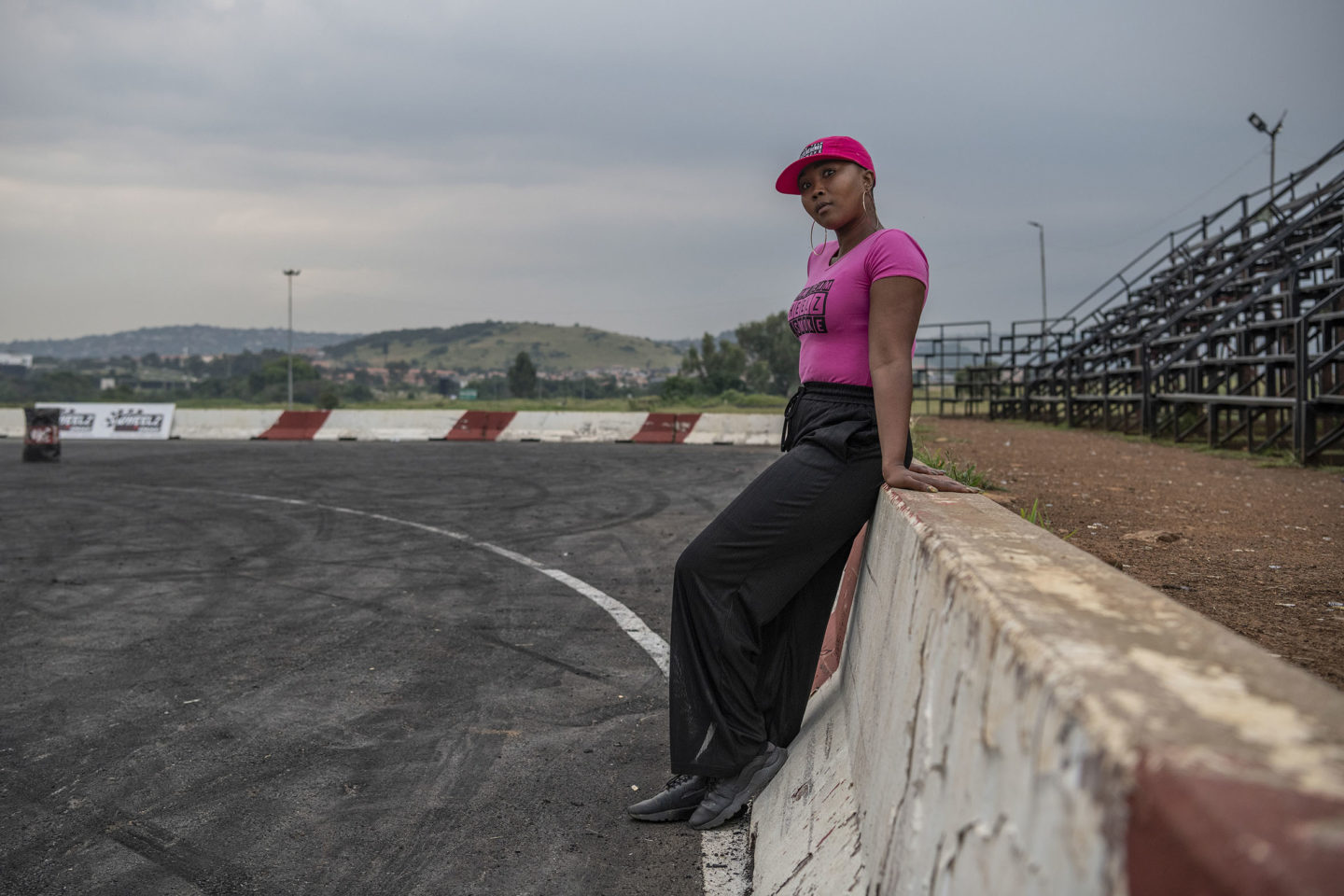
Mbele wasn’t always interested in the sport. “I grew up in the hood. I come from Thokoza and I would see spinning all the time, but it was a no-go area for girls because it was associated with gangsterism. I didn’t like it so I wouldn’t go and if I saw a car spinning, I would go the other direction.
“My love for it started with my husband. He had a passion for spinning and he loved going to watch these cars spinning in Nasrec on Thursday nights. Sometimes I would go with him, but I didn’t understand it. But he had a passion and I supported him.”
During that time, spinning happened primarily on the streets. This was not only dangerous for the spinners but for spectators as well, because there were no barricades to prevent serious accidents and no paramedic assistance nearby. For this reason, spinning was deemed illegal and the police would often shut down events.
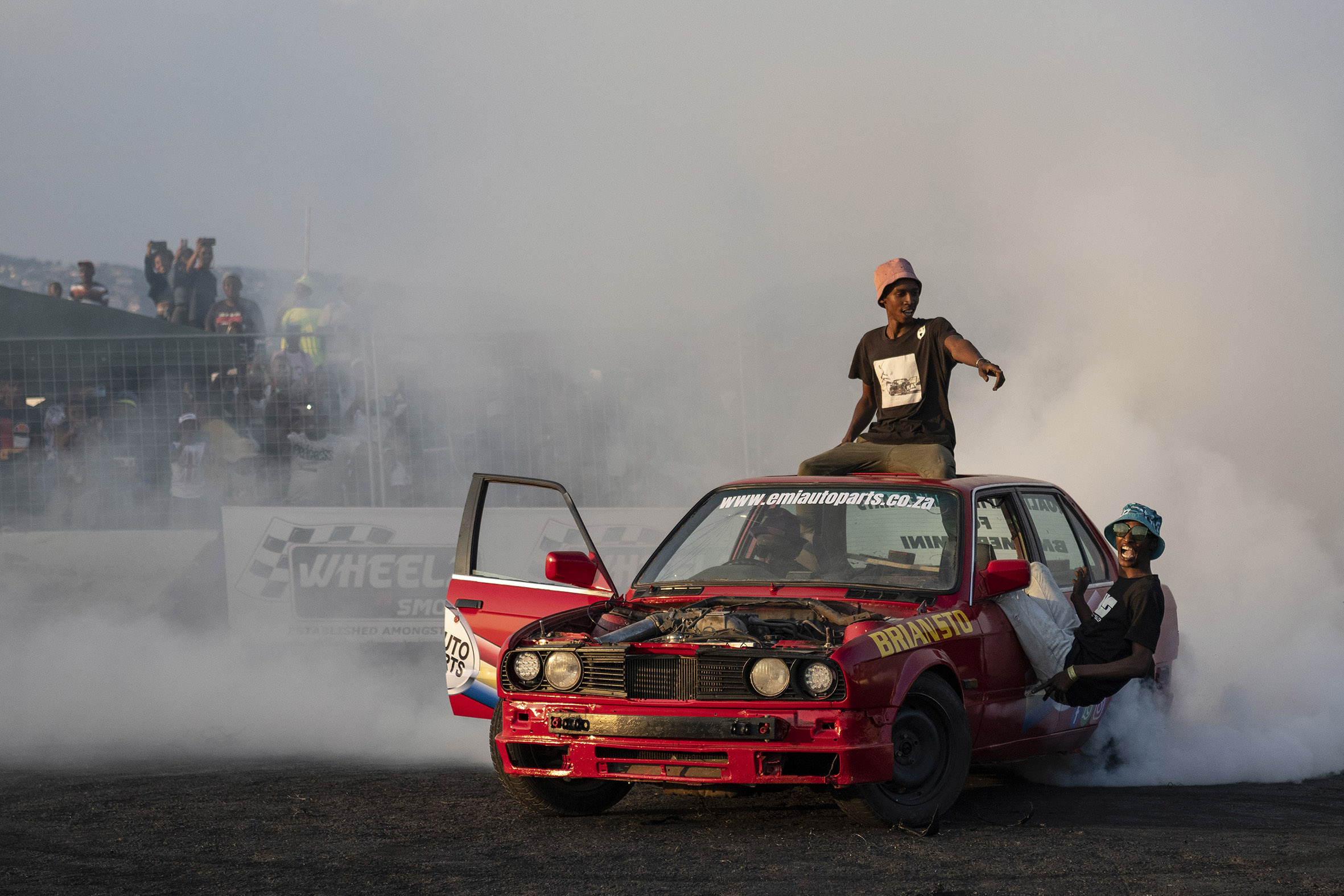
A family event
Led by their passion, Mbele and her husband Monde Hashe were determined to formalise the sport. They found a piece of land they could lease through the government and poured money into setting up the arena.
“At that time, I was pregnant with my first child and he’s 12 now. It was either buy a house or invest in spinning. At first I was sceptical, because it is a sport that was associated with gangsters. The spinners who were doing it at the time were comfortable doing it in the streets. But my husband is a businessman and he just thought we could do this in a confined space where people can come and pay to watch the guys spin and they can get some sort of compensation, and that’s how Wheelz N Smoke was born,” says Mbele.
When the track opened, participation and attendance were low, partially because the arena was new and because they were trying to figure out how to structure the business. It was something that had never been done before in the sport, so they didn’t know if it was a risk or if it could be profitable.
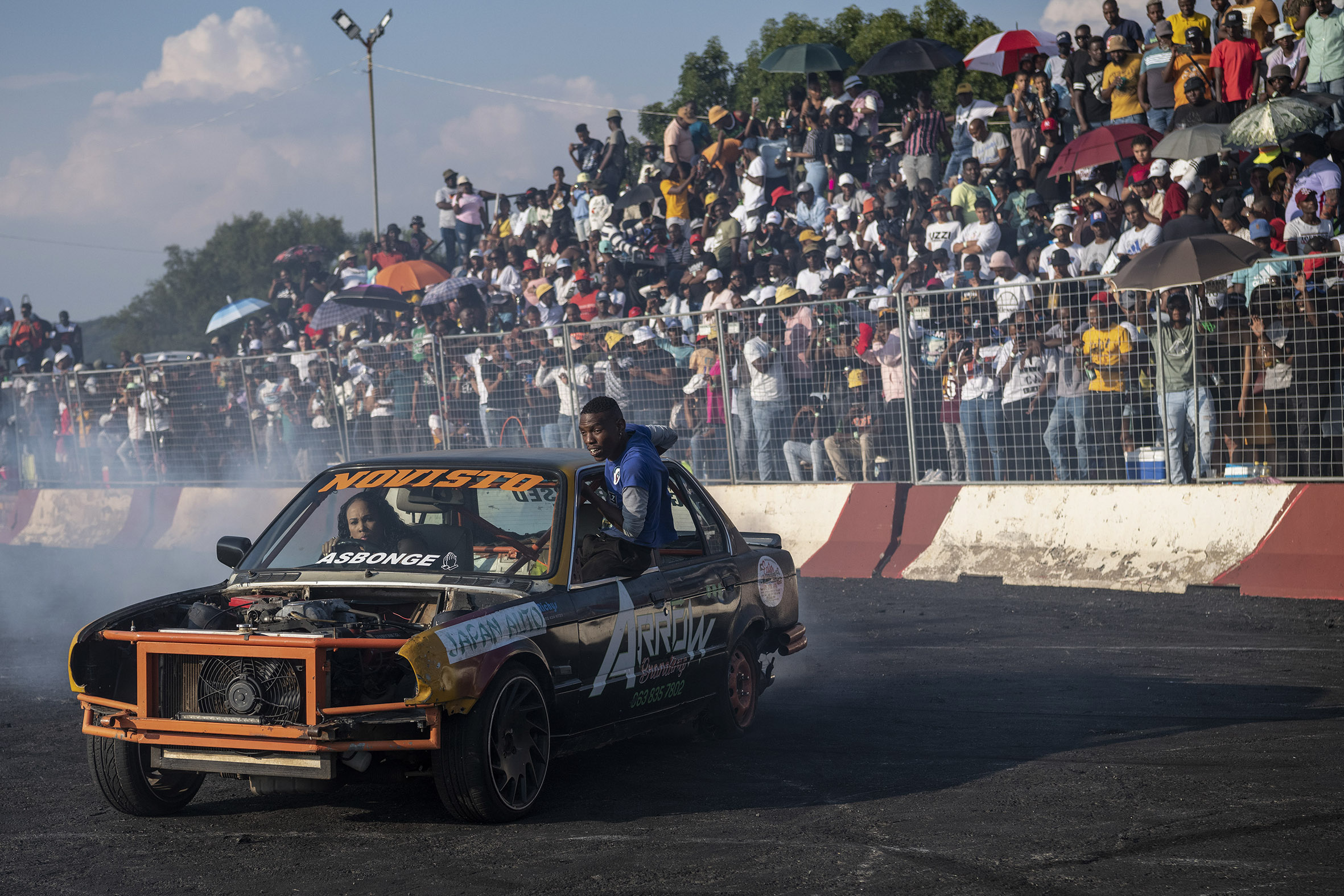
“We didn’t have any indication it would work. We took our life savings and it was just passion. It grew from 10 people to like 50 people and onwards. We could see the potential. But it wasn’t about the money, it was about the passion and just bringing these people to a place that is confined and is safe so they can enjoy it. Spinning is a family thing and it has become a community.”
The arena brought in more spinners from different backgrounds and different parts of Johannesburg and the country, and more people would come to see their favourite spinners. They also got creative, coming up with themes for marquee events that range from the weekly Thursday Spin Nights and the birthday bashes for different spinners to Revved Up Sundays, Kings N Queens of Smoke, SPINderella, Maputo vs Johannesburg and the Blood, Sweat and Spin Challenge, to name a few.
Rising popularity
Wheelz N Smoke has become one of the most popular arenas in the country, bringing in spinners from all over South Africa and beyond its borders. Thursday Spin Nights attract about 2 000 spectators a week, whereas major spin events can pull more than 5 000 people. The arena also hosts sponsored events with brands such as Monster, Japan Auto Trading and Kulture Festival, while the Red Bull Shay’ iMoto tournament has become a permanent fixture on the calendar.
The track has also become a site for music video shoots with artists like Cassper Nyovest, Nasty C and Davido. Several spinners appeared in Beyonce’s Already music video from The Lion King soundtrack.
“I think it’s become popular because a lot of people are interested in spinning. I remember before the pandemic we used to get people that come from America and different countries because they’ve been seeing this thing online. People would come to South Africa and one of the things that they wanted to experience was Spin Nights. If you go online, people are crazy about spinning, and it just became a tourist attraction without us even advertising it,” says Mbele.
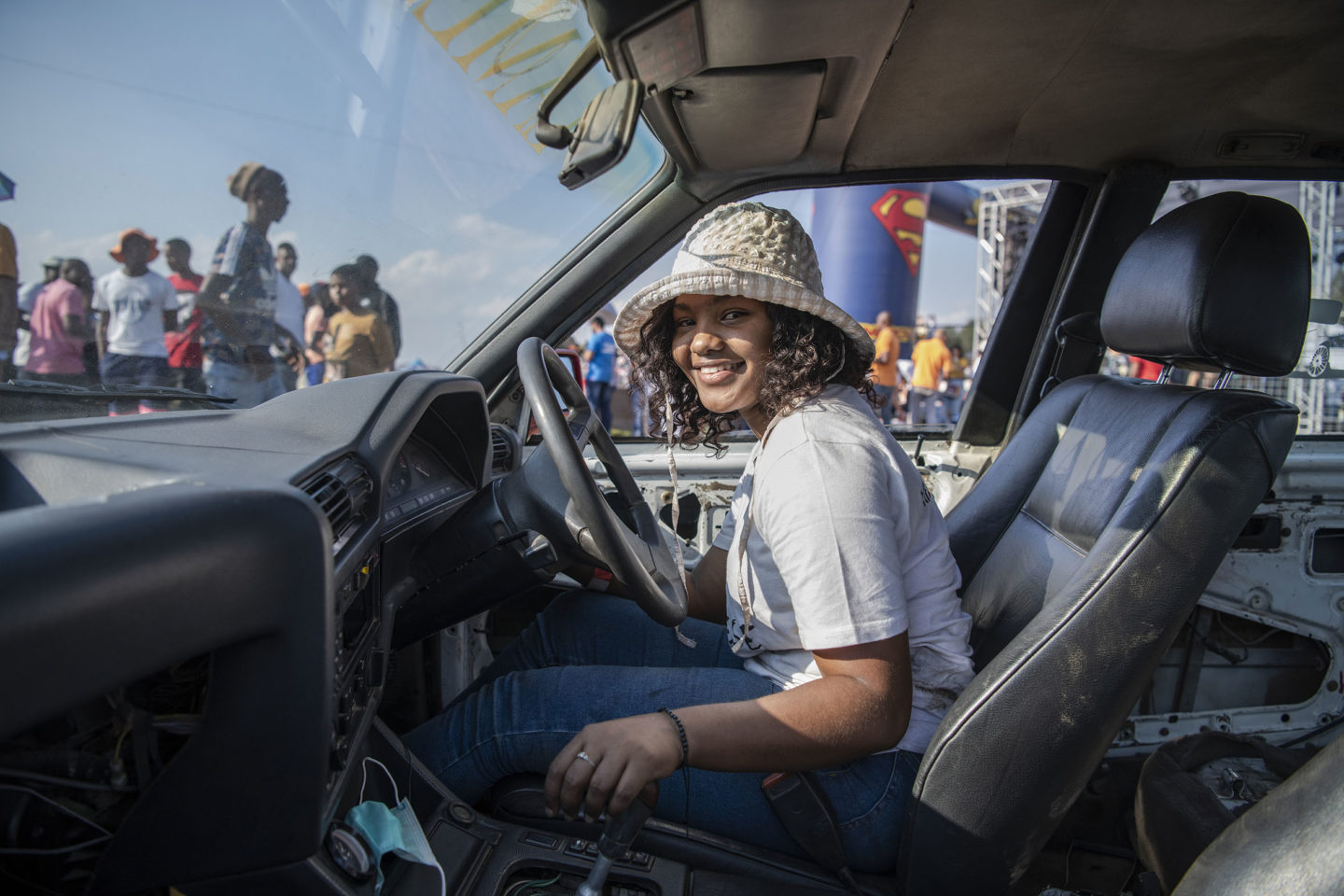
The Covid-19 pandemic and the subsequent lockdown threatened the viability of the arena. Mbele, like many business owners, had to close up shop and try to weather the storm of changing restrictions.
During the closure, there was a substantial amount of property loss as some of the cables, portable toilets, containers, gates and lights in the arena were stolen. As they were not making money, they couldn’t afford to hire security guards.
It would have been easy to close the arena permanently after multiple setbacks, but the passion that started everything would be the passion that carried them through.
“We had to restart. Spinning is a hard sport to keep up with, but when you start something you want to see it through. It was hard and we’ve had times where we thought we should close this place because of the difficulties we came across, but we are still here. People were calling and wanted to know when Spin Nights were coming back, so we wanted to keep it alive,” says Mbele.
Women only
With women competing alongside men, the respect that spinners such as Samkeliso “Sam Sam” Thubane, Katlego “King Katra” Mokgoshi and Dylan “Vaatjie Kunene” Brough command is the same respect afforded to the likes of Kaylin Oliphant, Stacey-Lee May and Synovia “Novisto” Smith. There is a strong camaraderie between the spinners regardless of gender, class and race.
“For a woman in spinning it can be quite difficult, because you always have to push to prove that you’re just as good as the guys. But I see them as brothers or fathers because they are always teaching me and showing me how to become better,” says May. “With the women, we are like sisters. I love Novisto and Lamese [Daniels] and they are the sweetest people I have ever met. When we get to a show, we are all together and we root for each other.”
Mbele thought it was important to highlight the women on the track with marquee events. The first was the Kings N Queens of Smoke, which first took place in 2014 and was so popular that it became a yearly event. It was followed by SPINderella the following year. The event was strictly for women spinners and it had more than 20 participants from different parts of the country.
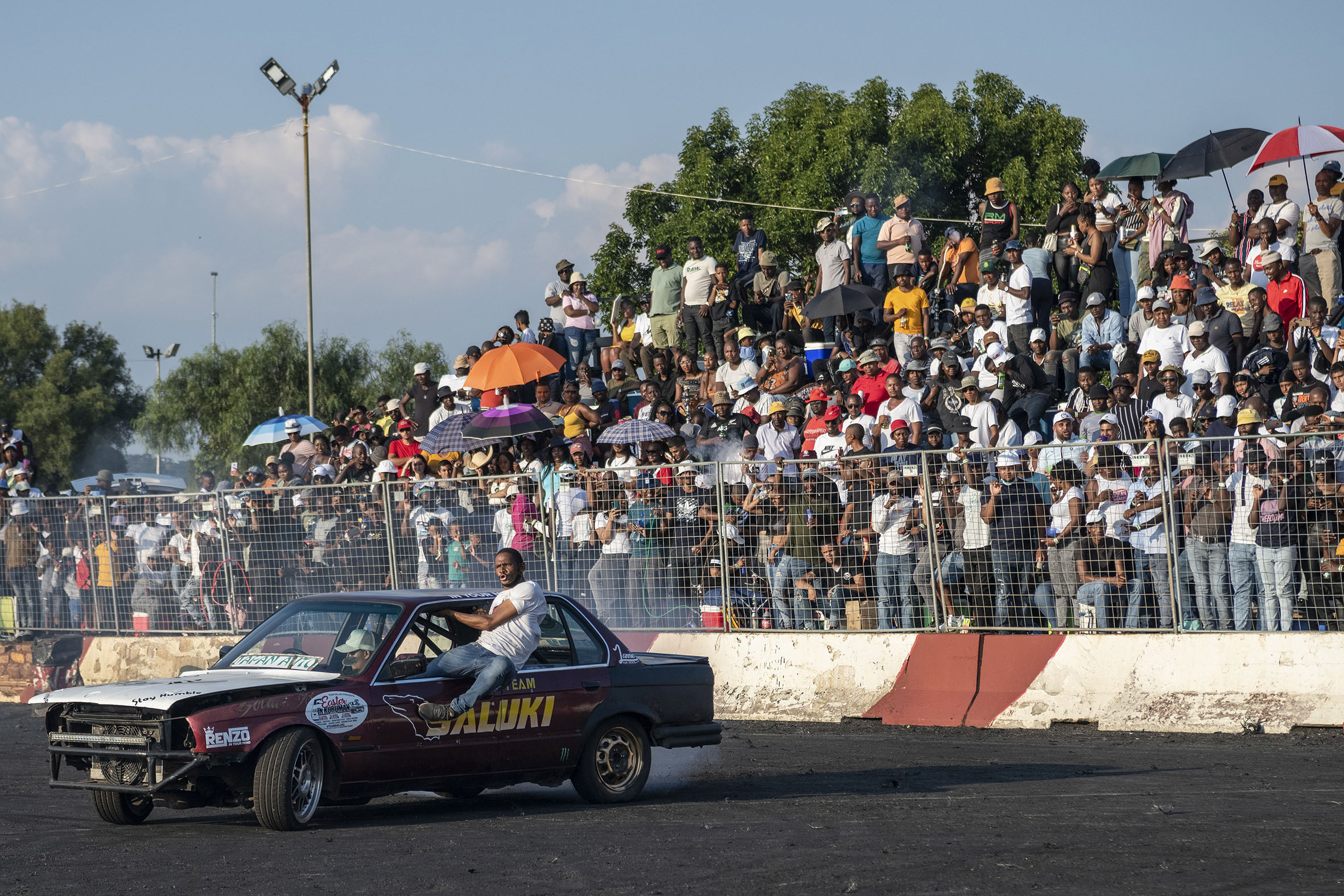
“I think it was an idea that my husband had and he ran it by me. People didn’t believe in the concept back then because women were new to spinning. But the girls were keen and some of them came from places where there isn’t much spinning, so they were eager to experience spinning in Johannesburg,” says Mbele.
It was the first of its kind and because of that, Mbele got sponsors like Monster on board and was able to get the event aired on SuperSport and eTV.
“We got a lot of interest from the media because people wanted to see what women could do. Monster was on board with SPINderella because it was something different. It was the only spinning show for women. Initially, when we started [with Monster], there was no financial support. They provided drinks and helped set up the VIP area and that was it. And then when we did the second show of SPINderella, we got some financial support from Monster. It helped because [the money] went a long way. That one was in 2016 and Stacey was crowned the Queen of Smoke, and that is important because she was one of the first women in spinning.”
‘What we can do with cars’
May is one of the most prominent women on the track. She is well known for her suicide slide and the Superwoman stunt she does from her purple and black BMW i3250. The Johannesburg-born daredevil was introduced to the sport in 2014, when she was just 17 years old.
“I was bullied a lot in high school and my dad thought that introducing me to car spinning would help boost my confidence. One day, he just took me out to show me how to spin and ever since then I have been spinning,” says May.
Within the first six months, she had learned how to do stunts and was competing with seasoned spinners. A few videos of her made the rounds on the internet, which led to her first gig with Cell C. It allowed her to make a career out of spinning.
May is currently sponsored by Monster Energy, Falken Tires and Hollywoodbets. She is in the latter’s latest advert with fellow spinner Austin Kruger. She was also cast to be in the first season of the Charlize Theron-produced Netflix Series Hyperdrive. Her accomplishments serve as an example to others of the possibilities available. More and more interest means the sport has the potential to grow on a global scale and spinners like May have had the opportunity to travel to places like Pakistan, London and New York to showcase their skills.
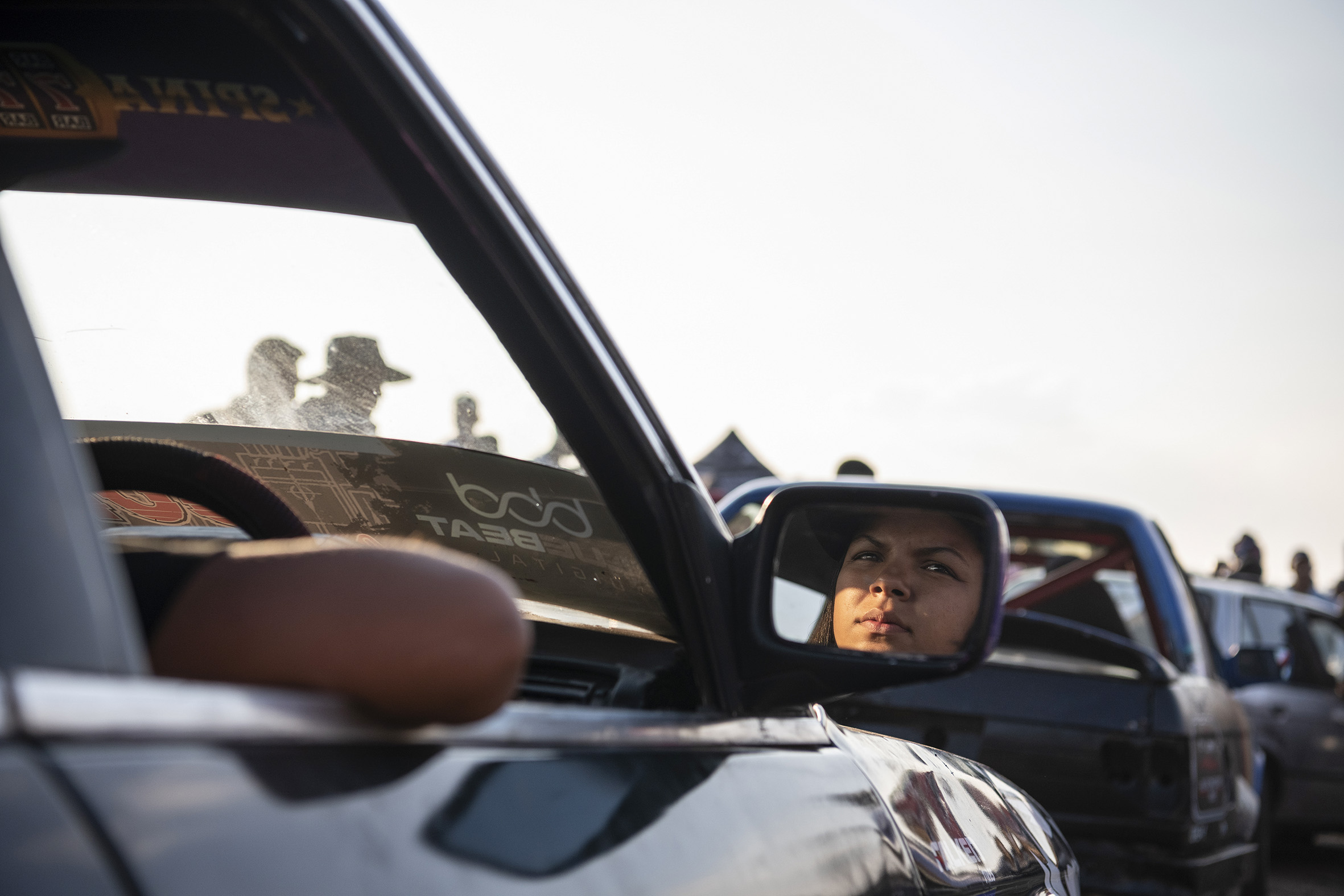
“I’ve turned spinning into a business and now I’m trying to show younger kids that the sky is not the limit, the universe is. I’ve been taking kids under my wing and teaching them how to spin. They are really good and they should just keep pushing. I want to see them go out of South Africa and show the world what we can do with cars,” says May.
However, the sport is not at a place yet where everyone has an equal shot. Mbele says the strides made mean there is potential, but it still needs more collaborative efforts with brands and heavy backing from the government.
“We need sponsorship, we need support from the government, because what we offer here is spectacular. I mean, spinning is the fastest-growing sport in South Africa. Look at the numbers we bring in when it comes to spinning. The spinners are also making money out of something that they used to do for free,” she says.
